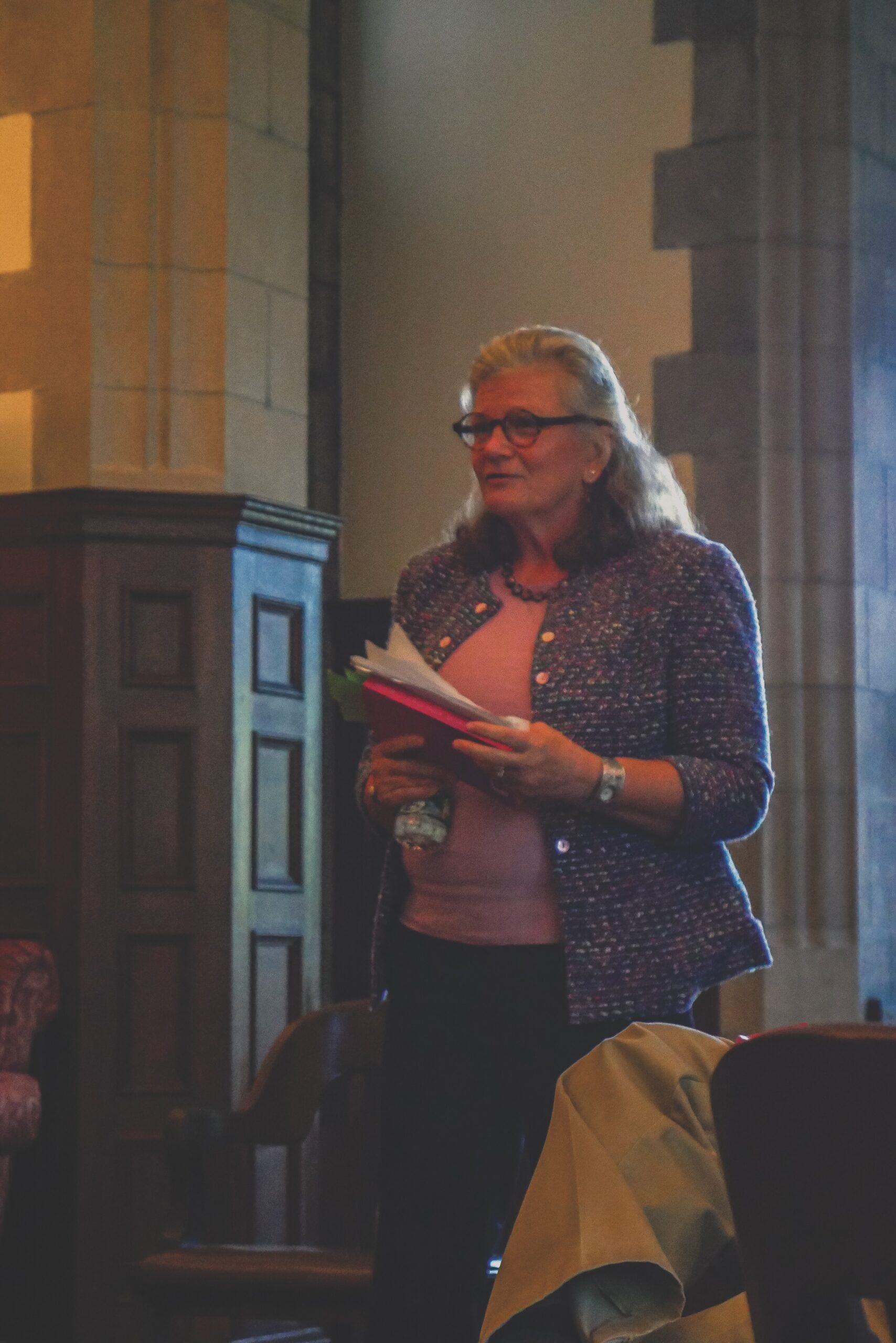Kathryn Graven speaks on motherhood, umeboshi and cross-cultural relationships
September 27, 2024
 Isa Cruz
Isa CruzOn Tuesday, author and journalist Kathryn Graven came to the College to deliver a talk about her new book “Memoirs of a Mask Maker.” The talk came to be when Graven approached Professor of Government and Asian Studies Henry C.W. Laurence, asking to bring her work to the College.
“I hope my story can inspire other people to study Japan and be open to what Japan can do,” Graven said. “I just want to be a cheerleader for the next generation of Japanese Studies students because I love the country.”
Originally from Minnesota, Graven had a tumultuous childhood. At a young age, her mother passed away in a car crash, and Graven had little time to mourn due to her father quickly remarrying. She wanted out: out of her family, out of Minnesota and out of the country. When the first opportunity came to leave through the American Field Service, Graven took it and was sent to Japan.
Graven quickly found a Japanese host family, despite speaking very little Japanese. She developed a special connection with her Okaasan (her Japanese host mother). Despite the culture shock Graven experienced because of the difference in language, clothes and culture, Graven found a common connection with her family through the magic of umeboshi.
One time, after catching a cold, Graven’s host mother gave her a medical herb called umeboshi—a pickled ume fruit common in Japan. To her host family’s delight, Grazen liked the sour fruits, trying them first when she was dreadfully sick but then consuming them eagerly. Grazen’s host mother began to pack the umeboshi with her host daughter’s lunch.
“What she didn’t know was that the umeboshi actually saved me in homeroom every day as we unwrapped our lunches at school,” Graven explained. “My classmates couldn’t help but glance over and stare at my obento. I’m not sure what they expected to happen, but when they saw my lunch of minced ground pork meat, runny scrambled eggs, sliced cucumbers and maybe a stewed carrot were all on top of a bed of rice that looked just like their lunches, they were stunned. The umeboshi on top sealed the deal…. During lunch, for at least 30 minutes, I fit in. I had what everyone else had: a Japanese mother who lovingly and artfully prepared my obento.”
Writing became another safe haven that Graven gained in Japan. It was a way for her to not only return to the “English brain” but also to connect with some of the many women who positively impacted her life.
“I had these other women who stepped in and gave me a helping hand. One was my paternal grandmother, who I wrote about in the book. Her name was Helen Davis Graven. And the other was my best friend’s mother, Phyllis. She lived next door to me in Minnesota,” Graven said. “Phyllis had given me a beautiful blue journal as a going away gift to Japan. And so I kind of credit that journal and that feeling of isolation that I was experiencing at the Japanese high school as really … the launch of my writing career.”
Graven’s high school experience in Japan inspired her to return to her career following her graduation from Stanford with a master’s degree in East Asian Studies.
When she arrived back in the U.S., although she initially worked as a translator for an investment bank, she quickly found her love for working as a night reporter at the ABC News Bureau. From there, she went on to work at the Wall Street Journal, before teaching journalism around Boston. More recently, alongside working in mixed media painting, Graven published her memoir in 2022 titled “Memoirs of a Mask Maker.”
While Japan did provide the stability she sought when she was younger, Graven now finds comfort and belonging in various locations. Whether it be Japan, Boston or London, Graven knows that her home is found within her support network. Experiences in her youth made her realize that families are not always born of blood but rather of the people you surround yourself with and choose to let into your heart.
Despite facing tragedy, Graven continues to see the curiosity and love that the women in her life guided her to experience. These women— her grandmother, a next-door neighbor and her Okaasan— shaped her into the person she is.
“The story isn’t that I lost a mother, but rather that I was rich in mothers,” Graven concluded.

Comments
Before submitting a comment, please review our comment policy. Some key points from the policy: